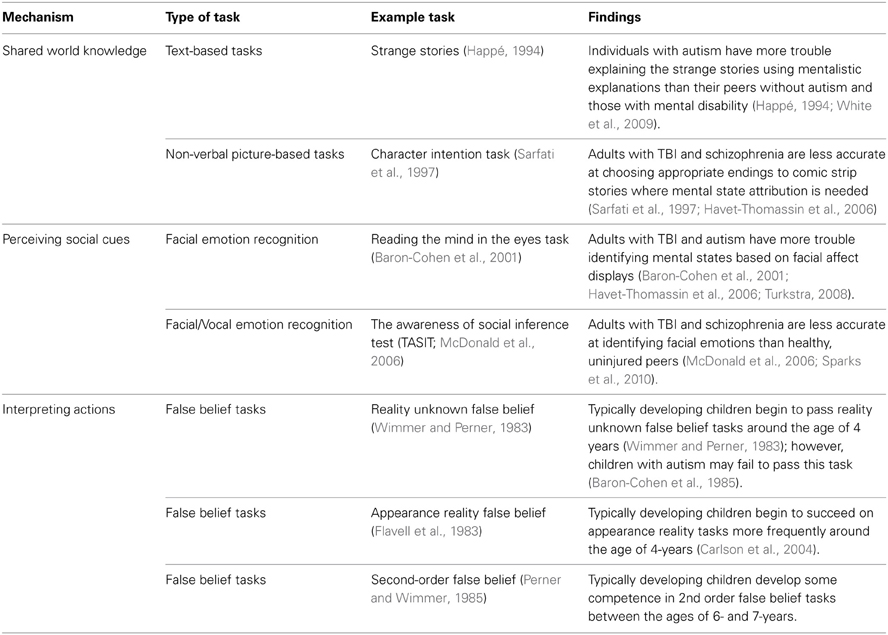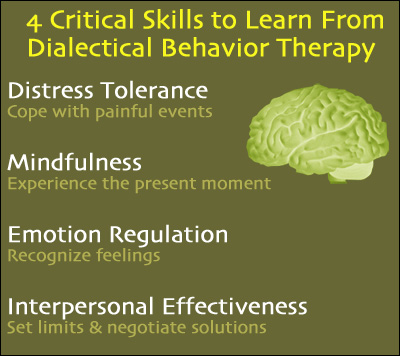The level at which an individuals comprehends ToM (Theory of Mind) is a tell to how well they can integrate socially with others, understand them, communicate with them and describe their own unique needs and desires.
Particularly ToM is only present in people on the spectrum and those with ACC with variable levels of success.
While I do not know clinically it is understood that ToM is not something easily gained or gotten if it is not present at all. There are those on the spectrum to which they have no grounding in this existential necessity of life. However, that being said, I have discovered for myself that if one has a limited ToM, there are indeed exercises, practices, ways of life that can enhance and finely tune what one does posses.
Why is this important, you may ask? To the degree that someone has insight into their own thought processes and those of others is the degree at which an individual can function in the social/emotional world around them. Those with very little or undeveloped ToM operate on a more instinctual level. By instinctual level I don't mean a higher instinct, but that of an animal of fight or flight, feast or famine type of processing the world around themselves.
In my own experience, while I have and continue to work on skills to finely hone my ToM, I find that it is not always a present part of my experience. There are times in which it is almost non-existent, and times which it is very strong and operative. However, the more I practice it, and become aware of it, the more consistent a life experience it is for me me.
Mindfulness is both is a foundation of, and a result of an active ToM. By mindfulness I am referring to a mental state achieved by focusing one's awareness on the present moment, while calmly acknowledging and accepting one's feelings, thoughts, and bodily sensations. While mindfulness can ease the suffering of humanity in general, it is even more so a specifically needed skill for those with ASD and ACC (at least I feel this is so). Mindfulness is also the quality or state of being conscious or aware of something...the more someone with ACC or ASD is aware of their own internal thought processes, emotions and such the more they become aware of that of others.
There are specific forms of therapy and self-learning that can help increase one's mindfulness and ToM. Here, I am particularly thinking of DBT, or Dialectical Behavior Therapy. DBT is a cognitive behavioral treatment that was originally developed to treat chronically suicidal individuals diagnosed with borderline personality disorder (BPD) and it is now recognized as the gold standard psychological treatment for this population. In addition, research has shown that it is effective in treating a wide range of other disorders such as substance dependence, depression, post-traumatic stress disorder (PTSD), eating disorders, and syndromes such as Asperger's (high functioning autism) and ACC.
DBT includes four sets of behavioral skills.
- Mindfulness: the practice of being fully aware and present in the moment.
- Distress Tolerance: how to tolerate pain in difficult situations, & not change it.
- Interpersonal Effectiveness: how to ask for what you want and say no while maintaining self-respect and relationships with others.
& - Emotion Regulation: how to change emotions that you want to change.
The more one learns to practice and exercise these skills, the more they become second nature, and the more Theory of Mind becomes active in an individual; giving them choices in life, behavior, and communication that before were not possible.
The term "dialectical" means a synthesis or integration of opposites. The primary dialectic within DBT is between the seemingly opposite strategies of acceptance and change. For example, DBT accepts people as they are while also acknowledging that they need to change in order to reach their goals. In addition, all of the skills and strategies taught in DBT are balanced in terms of acceptance and change. For example, the four skills include two sets of acceptance-oriented skills (mindfulness and distress tolerance) and two sets of change-oriented skills (emotion regulation and interpersonal effectiveness).
Zen and contemplative practices underpin DBT mindfulness skills and acceptance practices. DBT was the first psychotherapy to incorporate mindfulness as a core component, and the Mindfulness skills in DBT are a behavioral translation of Zen practice. The dialectical synthesis of a "technology" of acceptance with a "technology" of change was what distinguished DBT from the behavioral interventions of the 1970s and 1980s. Dialectics furthermore keeps the entire treatment focused on a synthesis of opposites, primarily on acceptance and change, but also on the whole as well as the parts, and maintains an emphasis on flexibility, movement, speed, and flow.
Here is a link to an excellent DBT self-help site on the web to get you started, should you be interested. DBT can and is taught in a group setting, in a therapeutic setting and as a self-help modality. I recognize that the different approaches will work differently for various individuals, but I encourage you to check it out. For those of you with ACC or ASD children, these techniques can be adapted to and the skills taught to young children as well.
Perhaps the single-most helpful thing I have learned and practiced outside of DBT (which I credit greatly for improving my life) is mindfulness meditation. I particularly practice Anapanasati or the Buddhist meditation of following the breath.
I know there are many out there that think "I can't stop my thoughts", "I can't be still to meditate", and other such things. What individuals are mistaken about though is the very idea of stopping thoughts. Not only is this not possible (for anyone) it is undesirable as well.
While it is technically more than this, Anapanasati is very simply bringing one's self back, over and over again, to the sensation of the breath in the body, at the abdomen, and/or the nose. When one becomes distracted (and everyone certainly will) and starts thinking or dreaming or whatever, one simply and gently directs themselves back to the sensation of breathing, inhaling and exhaling. The point of the exercise has little or nothing to do with stopping (or even avoiding or ignoring) thoughts, rather it's purpose lay in recognizing one is distracted and volitionally bringing one's attention back to the present sensations of the breath.
When done continually, this evokes ToM and mindfulness directly...when one realizes "hey, I'm thinking about chicken dinner tonight and forgot my breath!" this is an "AHAA!!!" moment to be celebrated, that one became aware and directs their attention back to the present (breath.) Among other things it will sharpen an individual's experience and understanding of their own internal world, thinking processes, etc...thereby making them aware of other's also.
Another aspect of mindfulness meditation is that is sharpens executive function. (EF) Executive functions (also known as cognitive control and supervisory attentional system) are a set of cognitive processes – including attentional control, inhibitory control, working memory, and cognitive flexibility, as well as reasoning, problem solving, and planning – that are necessary for the cognitive control of behavior: selecting and successfully monitoring behaviors that facilitate the attainment of chosen goals. Executive functions gradually develop and change across the lifespan of an individual and can be improved at any time over the course of a person's life. Similarly, these cognitive processes can be adversely effected by a variety of events which affect an individual. EF is particularly something thing all ACCers, along with ASDers and ADD/ADHDers have varying levels of difficulty with. Mindful meditaiton can work, over a long period of time to gradually increase and develop better EF.
Mindfulness meditation is something that can be carried out, regardless of religion or belief system, or lack thereof. It is not particularly Buddhist, although the Buddha did in fact refine and teach the system exclusively.
There are some excellent books and tools out there to learn mindfulness meditation. I'm a little reticent to put a bunch of links on this post, only because everyone's approach to this can and should be different according to their own needs and desires. If anyone is interested further, they can contact me or leave a comment and I will talk/chat/email with them privately about it.
Well, this was a long post, I sincerely hope that some of you will find some of the information in here helpful.
Joseph Galbraith




I found this article last month and owe you a big "thank you." Your blog is truly inspiring, as are you. I click on this website almost everyday when I turn on my computer, whether to search for new articles or reread others. I must say you have some valuable advice, and I am inspired by the way you overcome your struggles. A lot of people on this earth can definitely learn so much from you! Thank you for this blog, and for being so thoughtful and sharing your experiences to change others' lives.
ReplyDeletevisit this blog if u can
Sant Kirpal Singh